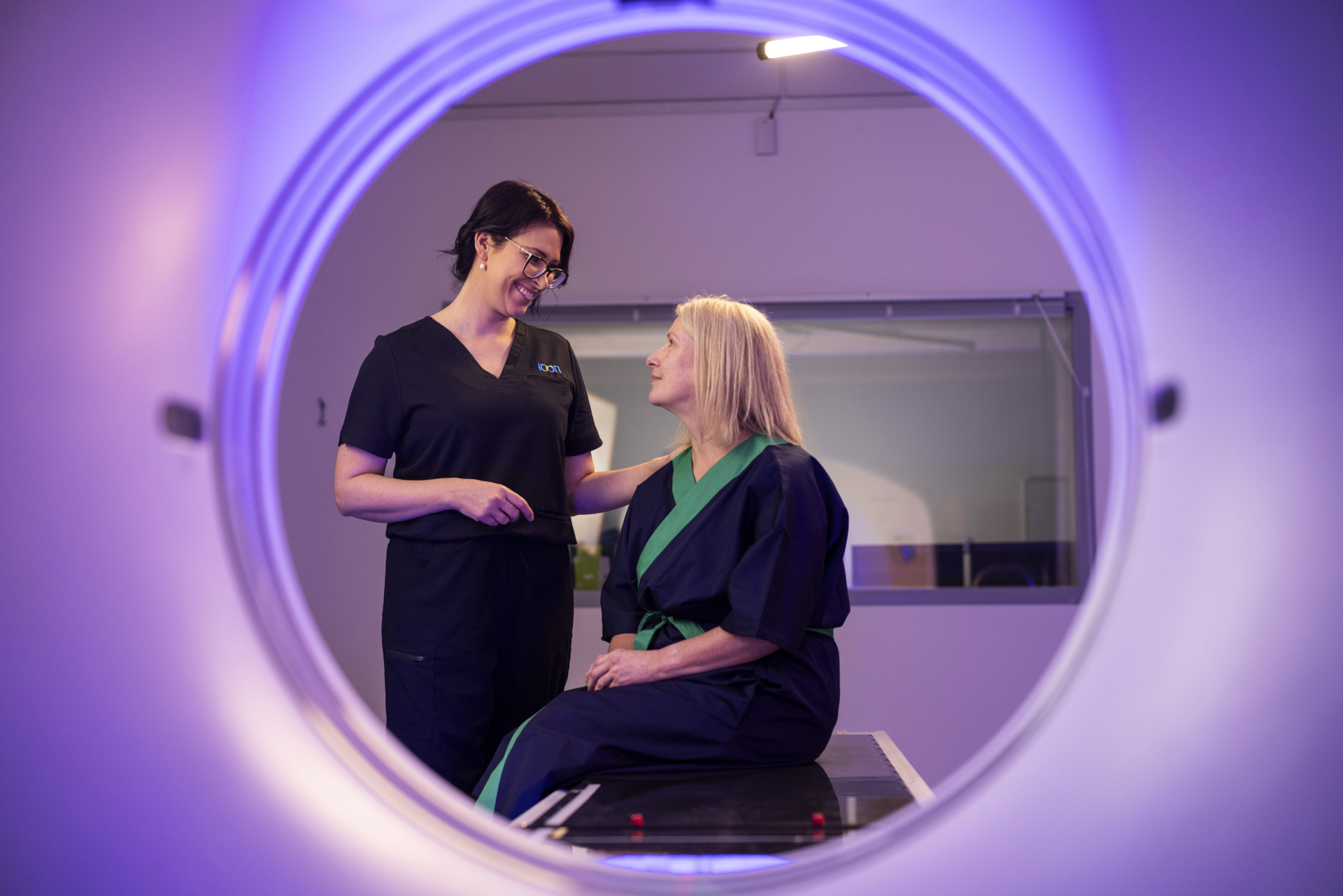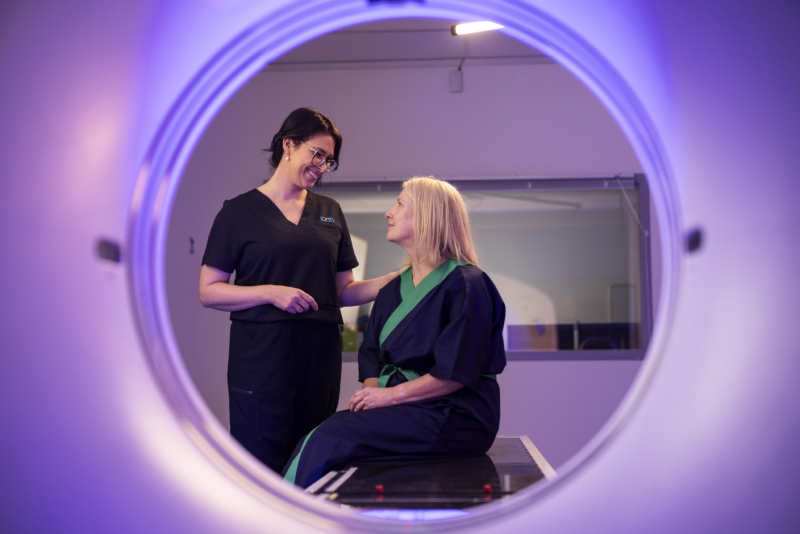At Icon, our PET/CT service supports the diagnosis, treatment planning, and monitoring of a wide range of cancers. Positron Emission Tomography–Computed Tomography (PET/CT) is an advanced imaging test that combines two scans in one:
- PET – shows how your tissues and organs are functioning
- CT – provides detailed images of your anatomy
Together, these scans deliver a highly detailed picture that helps doctors detect cancer, stage the disease, guide treatment, and monitor response to therapy.

